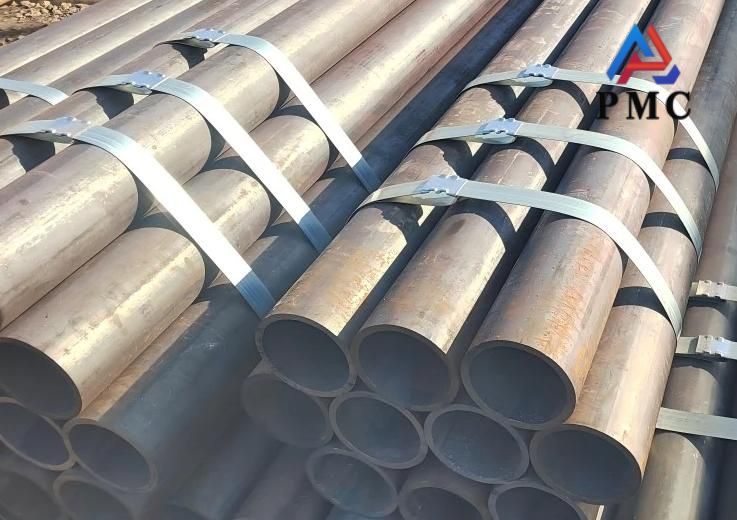
Seamless Steel Pipe Warranty Period
Seamless pipe is a seamless steel pipe. It is formed by piercing a solid pipe billet and then rolling it into shape. There are no weld seams on the whole pipe, so it has higher strength and sealing. Available in a variety of materials, including carbon steel, alloy steel, and stainless steel, the pipes can be selected based on the application requirements. They also come in a wide range of sizes, from small diameter pipes to large, thick-walled pipes, adapting to varying pressure and temperature scenarios. There is usually no unified national standard or industry regulation for the warranty period of seamless steel pipes. It mainly depends on the following aspects:
1. Supplier/Manufacturer's policy
This is the most important factor in determining the warranty period. Different steel pipe manufacturers and traders will provide different warranty periods based on their confidence in product quality, risk management strategies, and the results of negotiations with customers.
Common range: In the Chinese and international markets, the warranty period for seamless steel pipes is usually between 12 months and 5 years. Some suppliers may provide a standard warranty period of 12 months (1 year), while other reputable manufacturers with a high commitment to product quality may provide a warranty period of 2 years, 3 years or even longer.
Start Date: The warranty period usually starts from the date the product is delivered.
Specific agreement: The final warranty period will be clearly stipulated in the purchase contract or technical agreement.
2. Product types and application scenarios
The warranty period for seamless steel pipes of different uses and materials may vary:
Ordinary fluid conveying steel pipes or structural steel pipes: The warranty period of this type of steel pipe may be relatively short, usually about 1 year.
Special-purpose steel pipes, such as high-pressure boiler tubes, oil cracking pipes, line pipes, and precision pipes, have complex manufacturing processes and high performance requirements. Suppliers have stricter quality control and sometimes offer longer warranty periods to demonstrate product reliability.
Special anti-corrosion steel pipes: If the steel pipe has undergone special internal and external anti-corrosion treatment (such as 3PE coating, internal and external plastic coating), the warranty period of the anti-corrosion layer may be agreed separately from the steel pipe body, or the overall warranty period may be longer.

3. Warranty scope
Warranties on seamless steel pipes typically only cover manufacturing defects and material quality issues, such as:
The material of the steel pipe body is unqualified;
Dimensions do not conform to standard tolerances;
Defects such as cracks and leakage that occur under normal use conditions (in accordance with product design and specification requirements) and are proven to be caused by the manufacturer.
Warranties generally do not cover the following:
Damage caused by improper installation, non-standard welding, incorrect operation, over-temperature and over-pressure use, or external mechanical damage (such as collision or digging);
Corrosion caused by failure to implement or improper maintenance of anti-corrosion measures;
Damage caused by natural disasters or force majeure;
The product has been modified or repaired by unauthorized personnel.
4. Factors affecting the warranty period
Although the warranty period is a commitment made by the supplier, the actual life and performance of the steel pipe are affected by many factors:
Raw material quality: High-quality steel billets produce more durable steel pipes with fewer defects.
Manufacturing process level: Advanced production equipment and strict process control are the basis for ensuring the quality of steel pipes.
Transportation and storage conditions: Proper transportation and storage can prevent damage or corrosion of steel pipes before delivery.
Design and construction quality: Reasonable pipeline design and standardized installation (including welding quality and support setting) are crucial to the long-term performance of steel pipes.
Operating environment: The corrosiveness of the medium, the operating temperature and pressure, and the external environment (such as moisture, salt spray, and soil corrosiveness) will all affect the actual life of the steel pipe.
Maintenance: Regular inspection, anti-corrosion layer repair, cleaning and other maintenance work can significantly extend the life of the steel pipe.
Recommendation: When purchasing seamless steel pipes, in addition to paying attention to price, be sure to understand the supplier's warranty terms in detail and take it as one of the important considerations. At the same time, even if there is a warranty, the design, installation and maintenance should be strictly in accordance with relevant standards and specifications to ensure the long-term safe and reliable operation of the pipeline system.
Read more: Service Life of Seamless Steel Pipes


